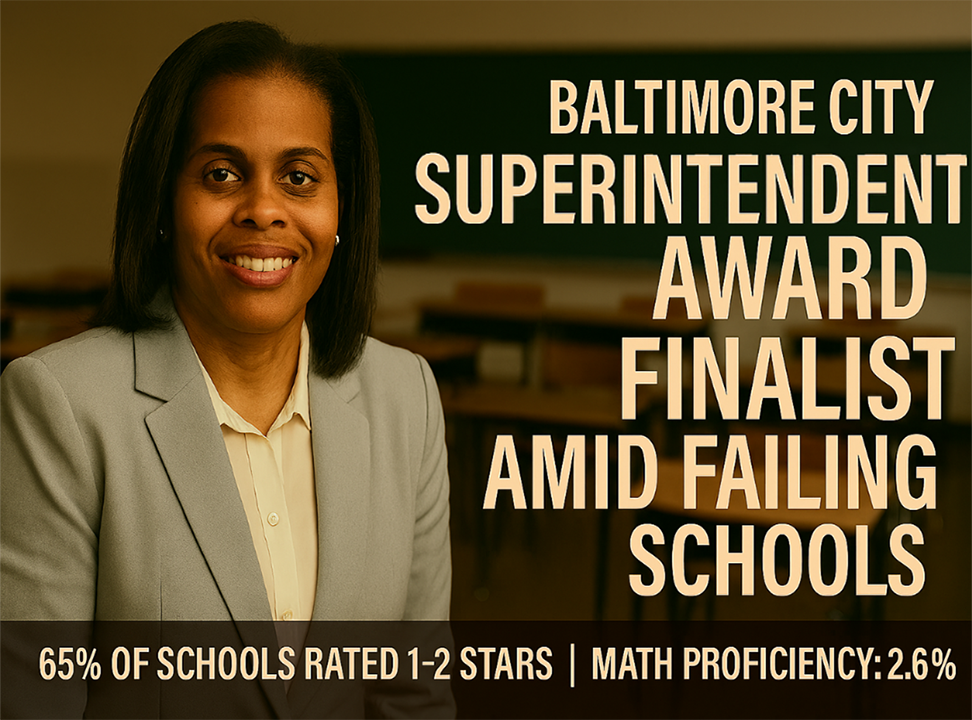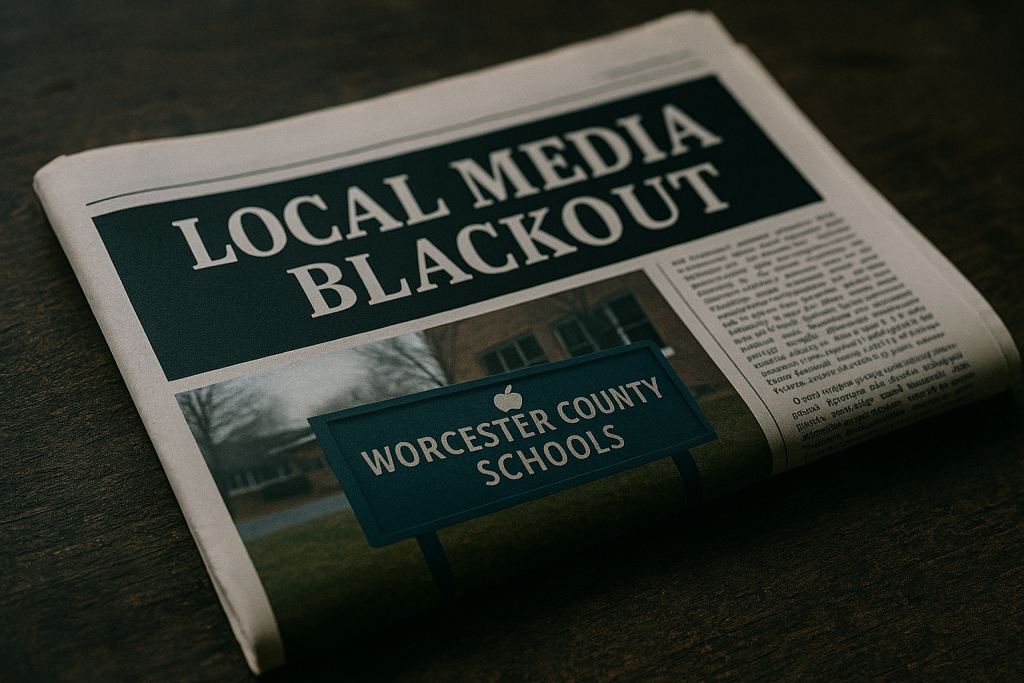

Chronic Absenteeism and Grading in Maryland: When Students Pass Without Showing Up
Chronic absenteeism has emerged as a critical issue in Maryland’s public schools. Over recent years, the number of students missing significant class time has surged, even as promotion rates remain very high (promotion is the percentage of students who are passed on to the next grade K–12). This disconnect creates important questions about accountability, instructional effectiveness, and the integrity of Maryland’s education system.
According to the Maryland State Department of Education (MSDE), chronic absenteeism has climbed steadily from 19.5% in 2018–19 to 30.9% in 2022–23, before improving slightly to 26.7% in 2023–24. In Baltimore City, the situation is even more extreme: nearly half of students were chronically absent last year, and yet, promotion rates statewide remain in the high nineties and are 94% in Baltimore City despite nearly half of the students missing excessive school days.
Why?
A big part of the issue lies in how schoolwork is delivered today. With most curriculum posted online, students can complete assignments at home and submit them electronically. Gone are the days of scrambling to collect makeup work or class notes. If you’re absent, you simply log in later and do the work.
This shift is reinforced by grading policies. Anne Arundel County’s policy, for example, allows late work with moderate penalties, and a “good faith effort” guarantees at least 50% credit. Similar sentiments play out in Baltimore County, where grades are derived from a comprehensive “body of evidence,” and teachers are discouraged from outright refusing late assignments. Participation may be included in grading, but rarely in a way that offsets flexibility around late work.
What Teachers Experience in the Classroom
This reality frustrates educators. Many have attempted to enforce deadlines, only to be overruled by policy norms that favor accepting late work—sometimes weeks later. Students quickly learn they can skip class, coast on their phones, and simply catch up later online. In some cases, teachers report students missing almost half of instructional days yet still earning a “B.” That kind of discrepancy undermines the credibility of both grades and classroom management.
Systemic Contradictions: Absence vs. Advancement
The tension becomes more apparent when looking at broader numbers:
- Anne Arundel County: ~21% chronically absent in 2023–24, yet ~97% promotion rate
- Cecil County: 98.3% overall promotion; 91.1% in grades 7–12
- Baltimore City: Approximately 49% chronic absenteeism, with 94% of students promoted
The data makes it clear that attendance and advancement are not aligned.
Why This Matters
Passing students who aren’t consistently present creates a cycle of disengagement. It erodes instructional quality. Most importantly, it risks graduating students who haven’t truly earned their progression through meaningful engagement and consistent instruction.
State Response and Way Forward
Maryland’s response includes forming a task force to reduce chronic absenteeism by 15 percentage points over three years. Yet addressing attendance alone won’t suffice if grading policies still allow students to succeed with minimal presence.
Attendance isn’t merely about seat time, it’s about engagement, interaction, and the learning habits that come with being part of a school community. Unless we restore the value of being present, both in how we grade and how we promote, students will continue to learn that showing up is optional. And when presence becomes optional, the system risks producing graduates who have advanced without truly engaging.
So, as Maryland continues to speak of the problem regarding attendance, we should first ask the question, “why should students go to school if they don’t have to?” Many want to, but many do not.
Dig Deeper With Our Longreads
Newsletter Sign up to get our best longform features, investigations, and thought-provoking essays, in your inbox every Sunday.
The MEN was founded by John Huber in the fall of 2020. It was founded to provide a platform for expert opinion and commentary on current issues that directly or indirectly affect education. All opinions are valued and accepted providing they are expressed in a professional manner. The Maryland Education Network consists of Blogs, Videos, and other interaction among the K-12 community.













